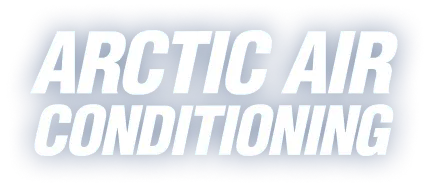
Your home’s electrical panel is the central hub that distributes power to lights, appliances, HVAC systems, and everything in between. When it’s outdated or overloaded, you’re more likely to experience flickering lights, tripped breakers, or even safety risks.
At Arctic Air, we provide professional electrical panel and circuit breaker services for homeowners across New Jersey. If you're upgrading your panel or adding new appliances, our licensed electricians are ready to help keep your system safe and reliable.
Schedule OnlineWhat is an Electrical Panel
An electrical panel, sometimes called a breaker box or circuit panel, is where electricity from your utility company enters your home and gets distributed to different circuits. It's typically a metal box located in a basement, garage, utility room, or hallway.
Inside the panel are circuit breakers that control power to various parts of your home. When a breaker detects a problem like an overload or short circuit, it “trips” to shut off power and prevent damage or fire. This makes the electrical panel a key part of both performance and protection.
How Do They Work?
Electricity flows into your home through a main service line and enters the panel through a main breaker. From there, it’s divided into individual circuits that power lights, outlets, appliances, and large systems like HVAC units or EV chargers.
Each breaker is designed to handle a specific load. When too many devices are running on one circuit, the current can exceed its limit.
That’s when the breaker trips to prevent overheating or damage. Resetting the breaker restores power, but frequent trips are a sign the system may be outdated or overburdened.

What Components Make Up an Electrical Panel
A residential electrical panel includes several key components:
- Main breaker: Controls the total power entering the home and can shut off all electricity at once
- Individual circuit breakers: Regulate specific areas or appliances throughout your house
- Bus bars: Distribute power to the breakers
- Neutral and ground bars: Provide safe return paths and grounding for electricity
- Breaker labels: Help you identify which switch controls which part of the home
Modern panels also accommodate newer technologies, such as arc fault circuit interrupters (AFCIs) and ground fault circuit interrupters (GFCIs), both of which add extra safety layers.
Electrical Panel Sizes
Electrical panels come in a range of sizes, typically measured by their amperage capacity. Common sizes include:
- 100-amp panels: Suitable for small homes with minimal electrical demand
- 150-amp panels: A step up, good for modest-sized homes with modern appliances
- 200-amp panels: Standard for most newer homes with higher electrical needs
- 400-amp panels: Found in large homes or those with high-demand systems (EVs, hot tubs, solar)
Choosing the right size depends on the age of your home, current usage, and any planned additions or upgrades.
Signs You Need to Repair or Upgrade
Not sure if it’s time to call an electrician? Here are some common signs your panel may need attention:
- Frequent tripped breakers
- Flickering or dimming lights
- Warm or buzzing panel surface
- Burn marks or a burning smell
- Older panel with fuses instead of breakers
- No room to add new circuits
- Planning renovations, appliance upgrades, or EV charging stations
- Breakers that won’t reset or keep failing
If you’ve noticed any of these issues, it’s a good time to schedule an inspection and talk through your upgrade options with a trusted electrician.
Your electrical panel is one of the most important and overlooked parts of your home’s infrastructure. At Arctic Air, we help New Jersey homeowners stay safe and up to code with expert service for circuit breakers, panel repairs, and complete upgrades.
Whether you’re planning a remodel or responding to warning signs, our experienced electricians will get the job done right.
Schedule OnlineFrequently Asked Questions
Circuit breakers trip and can be reset, while fuses blow and must be replaced. Breakers are safer and more convenient for modern homes.
Most panels last 25-40 years, but that depends on use, load, and proper maintenance.
No. Electrical panel work should only be handled by a licensed electrician to ensure safety and code compliance.
Typically, 4-8 hours depending on complexity and whether other upgrades are needed.
Yes. Electrical upgrades usually require permits and inspections to meet local codes.
Yes, but only temporarily. Most panel replacements are completed in a single day.












